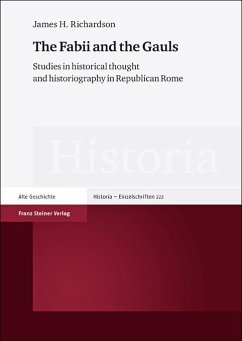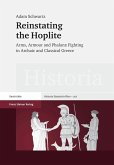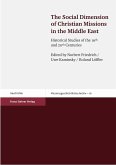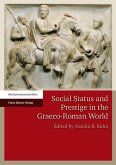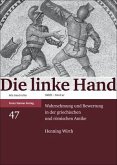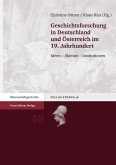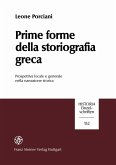This e-book explores how Roman ideas about human behaviour and historiography affected the ways in which the Romans wrote about their past. The first of the e-book's three chapters considers Roman views concerning human behaviour and the impact that these had on the traditions of Rome's past. The second looks at the presentation of the
gens Fabia in the literary evidence and at the ways individual Fabii were said to have behaved. The final chapter examines the evidence for the Gallic sack of Rome and considers the influence that Greek historical traditions had on Rome's own traditions. Numerous members of the
gens Fabia were said to have acted in a similar manner and even to have done the same things, while the tradition of the Gallic sack bears a striking resemblance to the tradition of the Persian sack of Athens. Scholarship usually maintains that individual historians such as Fabius Pictor were responsible for devising these sorts of parallels, and that they did so for their own literary and political purposes. The principal argument put forward here is that they are the inevitable product of Roman historical thought, and so need not be attributed to any one historian.
James H. Richardson is Lecturer in Classics at Massey University.
Dieser Download kann aus rechtlichen Gründen nur mit Rechnungsadresse in A, B, BG, CY, CZ, D, DK, EW, E, FIN, F, GR, HR, H, IRL, I, LT, L, LR, M, NL, PL, P, R, S, SLO, SK ausgeliefert werden.

